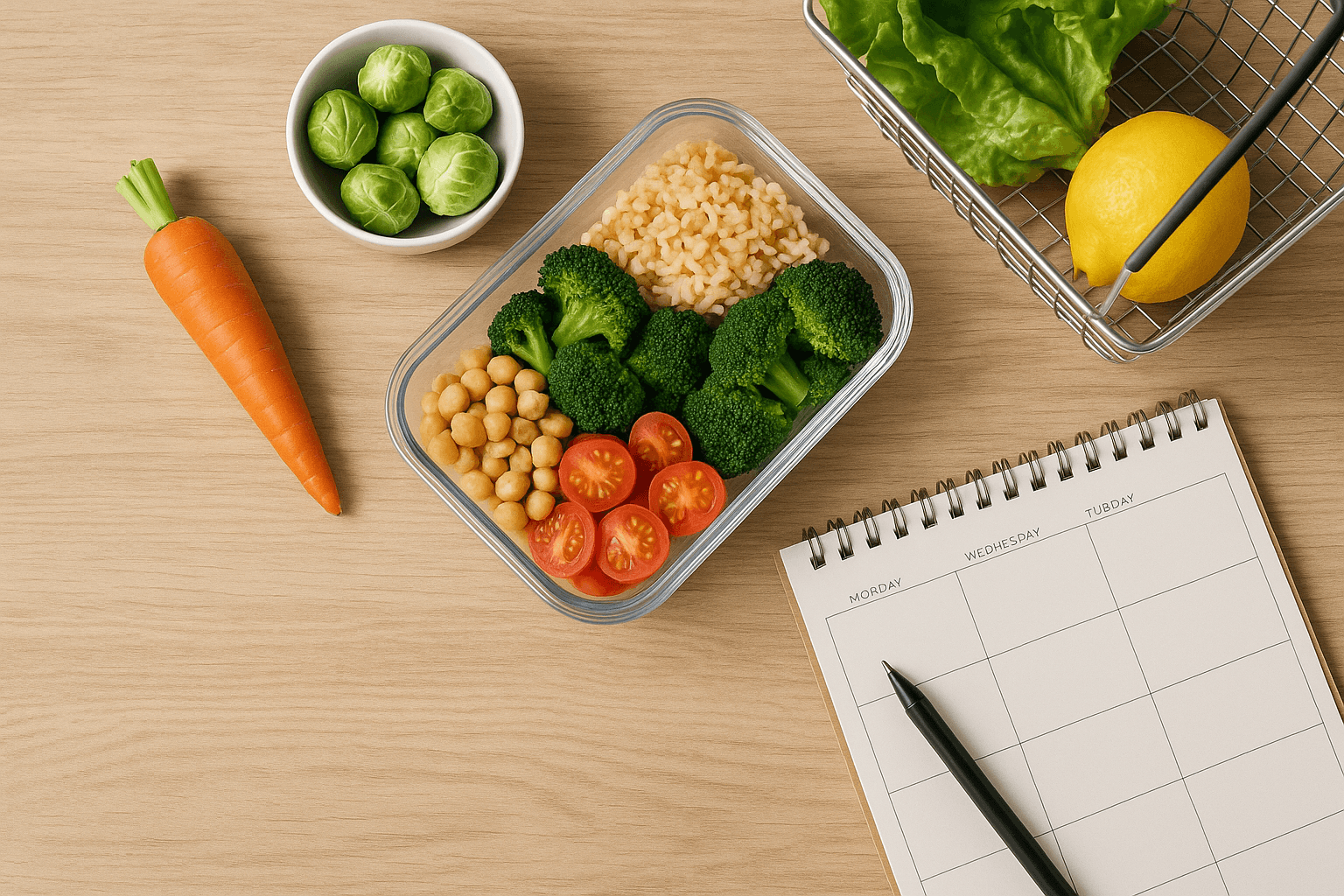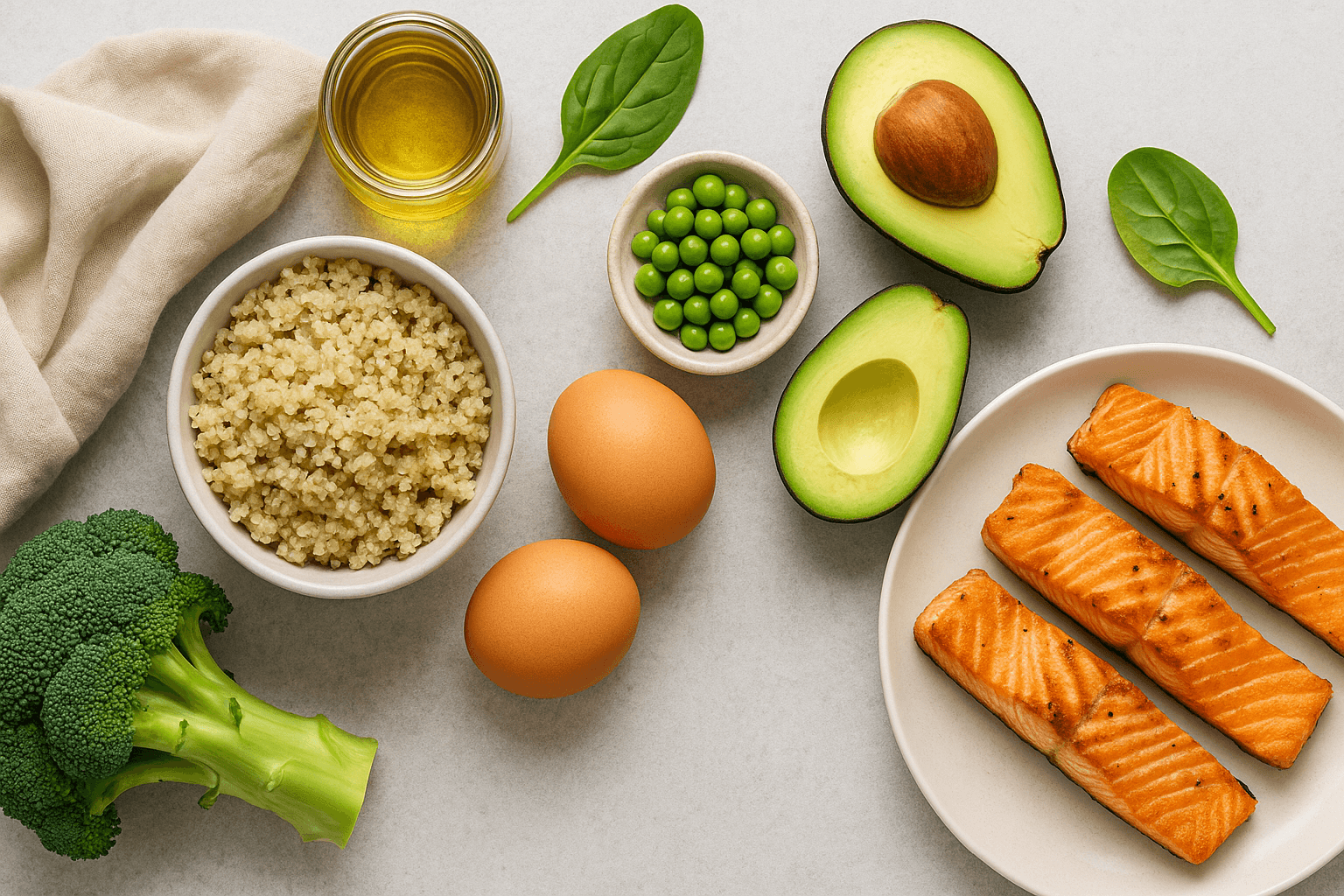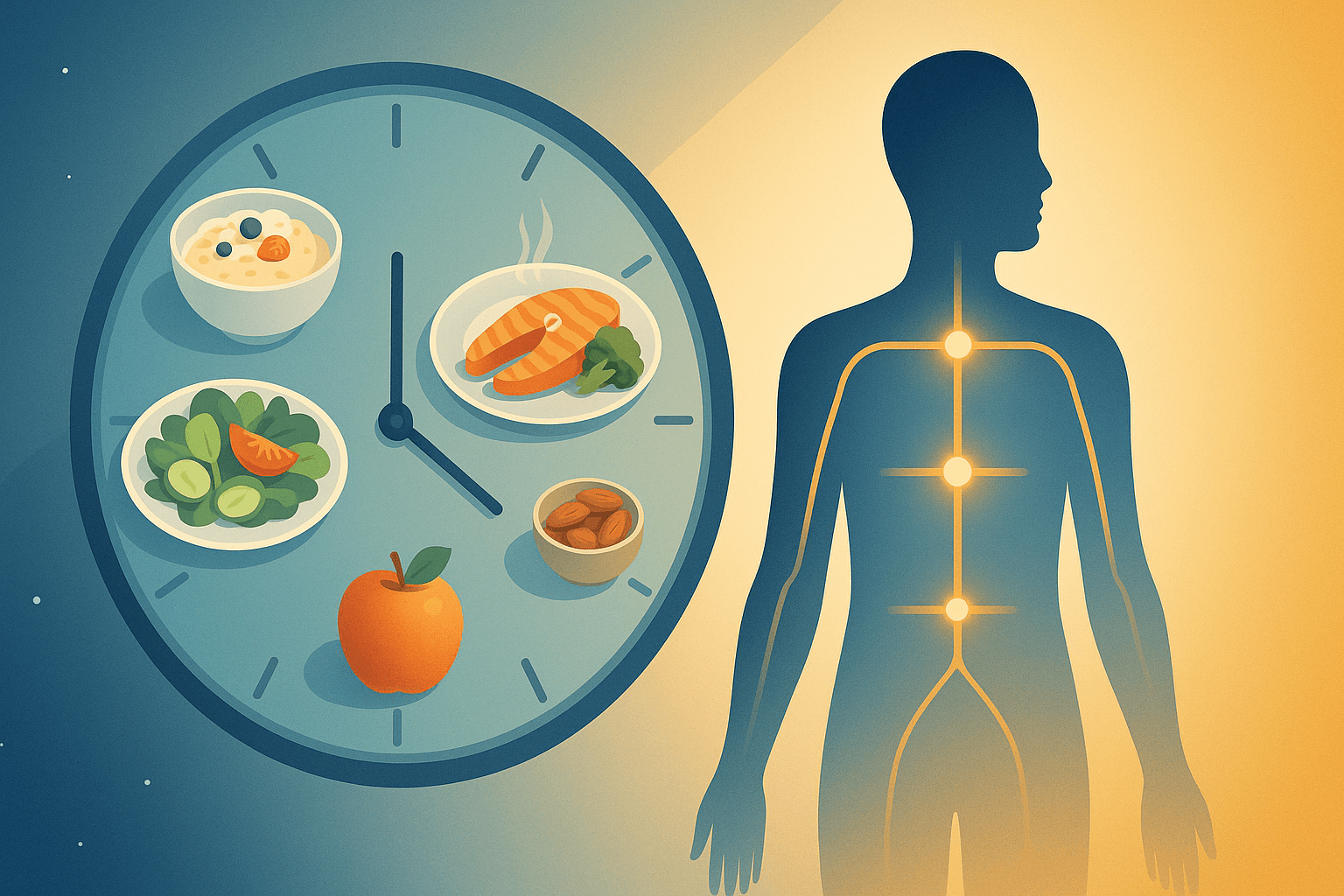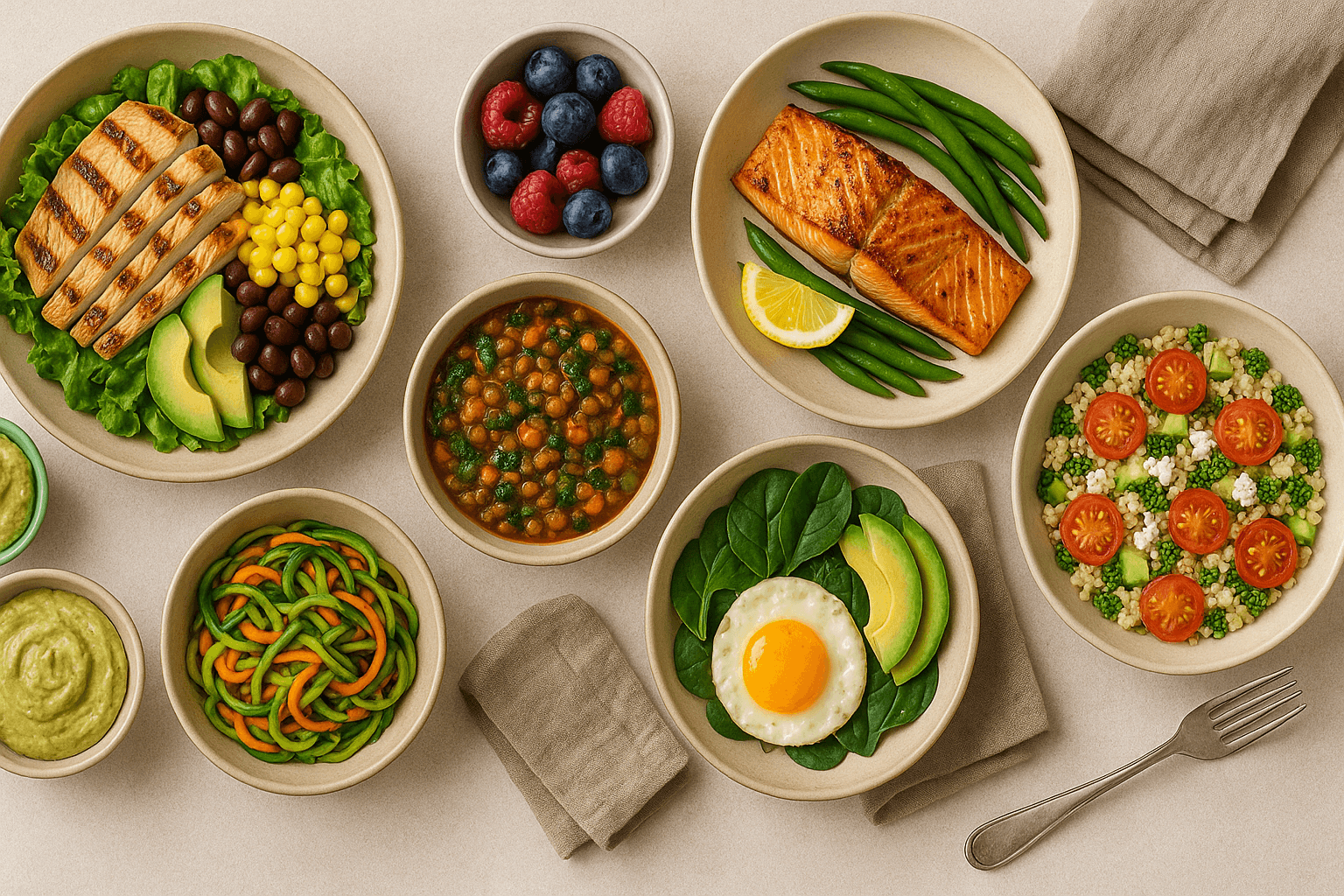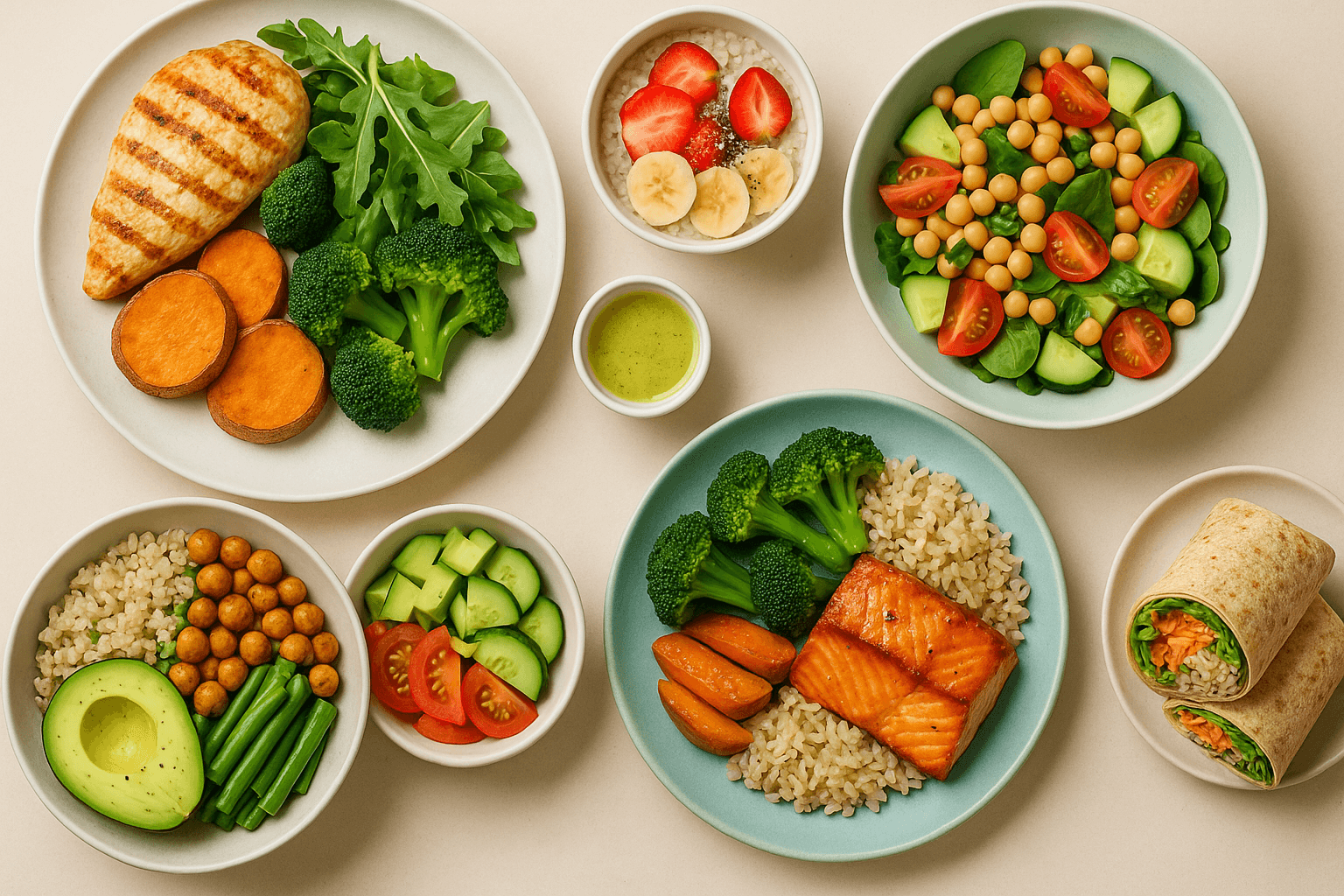MEAL PLANS: HOW TO STRUCTURE YOUR EATING FOR BETTER HEALTH, ENERGY, AND LONG-TERM SUCCESS
Published on August 12, 2025
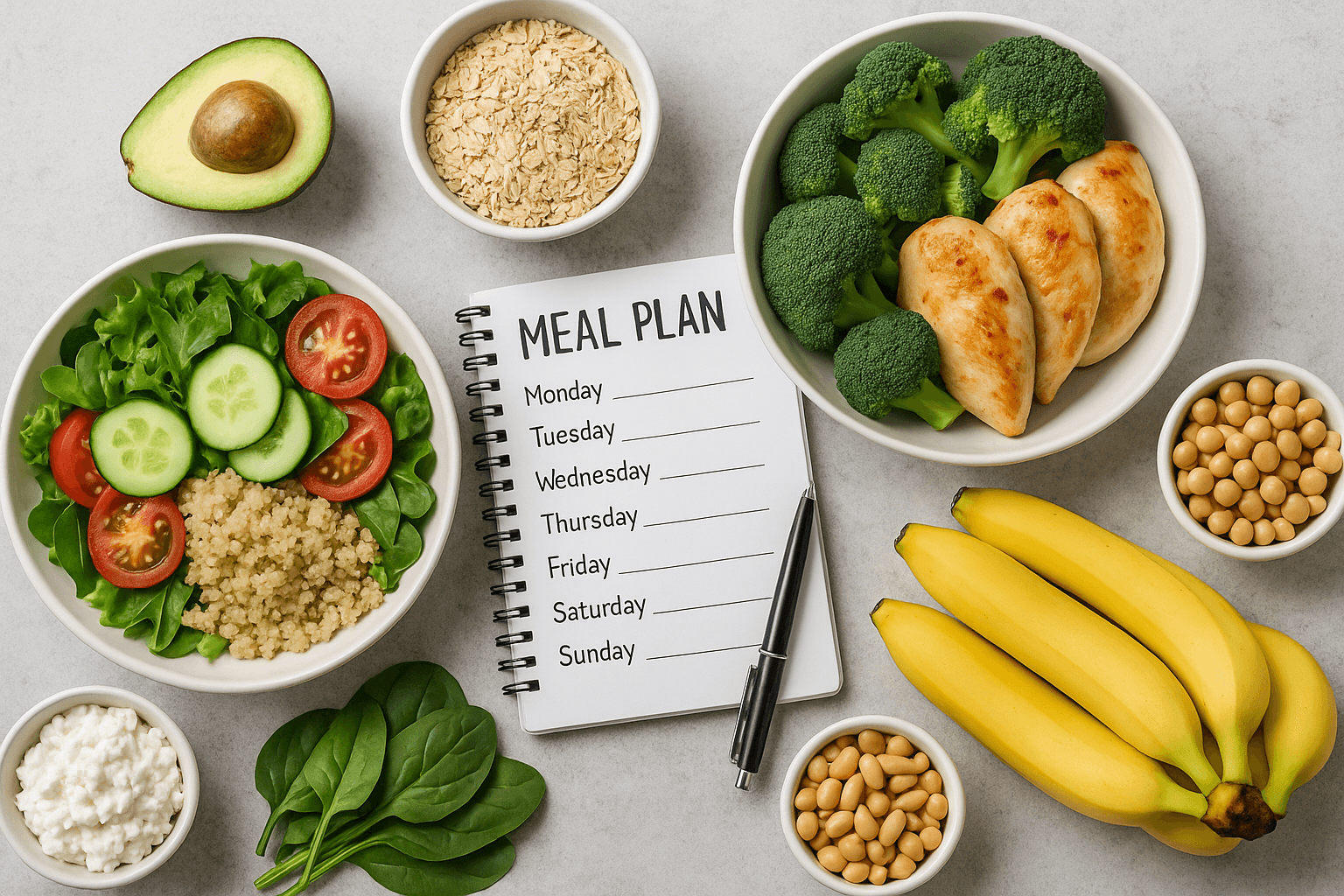
Meal planning is no ordinary organizational method, meal planning is the ultimate proactive take on your nutrition, your energy and ultimately how you will feel in 20 years! A well thought out meal plan is not simply a list of meals to cook — it is your personal strategy, that will be the mirror through which you can see what needs change in order for you to reach your goals. You can get into a daily habit of having healthy meals on hand that way you are less likely to grab for the hyper-processed or too often nutrient void foods. Whether your goal is weight loss, optimal physical performance, better management of a chronic condition or just overall nutritional balance, using a meal plan can be an essential tool to help you meet that end!
Working at a quick pace in today's fast-moving world, timing can often be against you coupled with the convenience of prepared foods everywhere that over reliance on speed can sometimes inhibit the adherence to healthy eating habits. For most people, that translates into using the fast/high caloric/low-nutrient foods thus creating a roller coaster of energy levels and mood swings over time. Planning meals ahead of time takes a step away from the ledge, making your health your priority. The intention here is not to be too prescriptive or to make it difficult; flexibility is the key but there needs to exist a certain level of intent in doing this planning. When you plan meals in advance, your grocery list goes to the next level, you prepare food more efficiently and eating healthily is less of a chore and instead becomes a normal part of life.
The Benefits of Meal Planning
One of the greatest things about meal planning is that you can guarantee getting all your nutrients in every single day. Instead of relying on the luck of a passing snack truck, if you meal plan, you can ensure all your meals incorporate an appropriate portion size of protein, complex carbohydrates, healthy fats, fiber and micronutrients. A more balanced intake will help keep your energy levels stable, prevent nutrient deficiencies, and support everything from muscle recovery to mental focus. You can also focus your meals on health goals like keeping sodium in check for improved blood pressure, selecting high-fiber foods to keep digestion healthy, or choose low-glycemic options to help stabilize blood sugar.
Its most prominent advantage is its time efficiency. You are no longer guessing what to eat and reduce the chances of skipping meals or ordering fast food. It speeds up your grocery shopping (because you know exactly what you need) and meal prep (as everything is organized). In the long run, you can free up hours a week — time to exercise, read books, or just relax.
Meal planning can make a huge financial difference. With your meals planned out in advance, you are able to use sales, purchase in quantity and avoid the premium cost of take-out or last minute grocery store prices. Food waste is also drastically reduced — every thing you buy needs to be used in a meal. By cooking at home and not wasting as much, the savings you generate can be funneled towards more expensive (and often healthier) ingredients for your meals that will in turn increase overall nutritional quality of your diet.
This mental release feeling is something that is sorely overlooked for what it really brings; peace of mind into the knowledge that meals have been planned (sometimes prepped! Especially for families that are busy living multiple lives or do have really time-consuming jobs. Sitting down to a soul warming, healthy meal that you didn't have to make on the fly eating at a fast food chain always taste better.
Types of Meal Plans
Daily Meal Plans are detailed plans of all meals and snacks in one day. Easily their most important tool are Macros Templates that are especially helpful for athletes who require macro balancing, individuals in recovery from injury or surgery and those on highly controlled therapeutic diets. By doing so, they eliminate a component of uncertainty and make following nutrition goals more manageable.
Whether you use Weekly Meal Plans, or the shit-tonne of Families ones around…. they enjoy having all these general recipes. They give a level of structure for variety's sake, but also allow you to reuse several meals for convenience. For the most part, a normal weekly schedule would mean one for 3 meals a day and some snacks, it serves as a guide of what you would cook for the week as well as your shopping list at the grocers. Some folks create weekly themes such as Meatless Monday, Taco Tuesday, or Fish Friday for easy planning and to add some levity.
This is for the long haulers who also love a bit of organization and efficiency with monthly meal plan. With this method, you can plan your meals around seasonal produce, bulk purchase pantry staples and time plans to work social events or busy work periods. Training yourself to plan a month at a time is great for batch cooking and freezing, so that you can have a regularly rotating stock of prepared meals_ENCODING_ERR
Personalized Meal Plans are designed for specific lifestyles or dietary choices. Other types of plans cater to people who have certain dietary restrictions or needs. These diet plans include high-protein, low-carb/ketogenic, plant-based (vegan/vegetarian), and medically necessary diets -- like gluten-free and low-sodium. Since many specialized diets exclude commonly consumed food groups, it is crucial to choose a meal plan that balances its nutrients.
Building a Balanced Meal Plan
Nutritional balance is the foundation of a solid meal plan.
Protein is essential to repair tissue and create muscle, it also makes you feel full. Another importance of it being whole food and coming from a variety of sources is that lean meats, poultry, fish, eggs, dairy (if you can tolerate), legumes like beans lentils chickpeas tofu tempeh provide a wide range of amino acids as well as other nutrients.
Carbohydrates are the bodys main energy source but it is made important to focus on quality. Whole grains, starchy vegetables, fruits and legumes deliver more constant energy and also include fiber for digestive health and important nutrients – opt to moderate refined grains and sugars.
And on the real, Healthy Fats are essent for brain function, Unbalanced Hormone levels and Nutrient Absorption. Using sources such as avocado, nuts, seeds, olive oil and fatty fish in meals support overall healthfulness over time.
Fiber aids in your digestion, controls blood sugar levels, and helps keep you full. Make sure that you get enough fiber from vegetables, fruits, legumes, and whole grains by filling your plate with veggies.
For these, the best source is a variety of colourful fruits and vegetables (also with antioxidants to aid in protecting your body from oxidative stress).
Hydration is equally important. While water should be by far the most dominant of your fluid choices, you can cover some of your bases with herbal teas and a moderate helping or two of coffee. Most of us know that when it comes to energy, avoiding sugary drinks and over consumption of alcohol is a “no-brainer.
Useful Tips to Ensure a Successful Meal Prep
Make it simple and easy for yourself, especially when you are starting out. Find a few solid go-to meals that you already know are winners and easily fit into your routine. So when you are comfortable with these meals, swap in new meal ideas to keep it fun and fresh.
Pick meals within your reality of cooking based on the time you have. The Problem: If you get all excited about planning super ambitious recipes every night, you'll probably burn out before too long... which also kinda makes the habit unsustainable.
Rotate proteins, vegetables, grains and how you cook them. This helps keep diversity in our meals and exposes us to more variety!.
Take advantage of batch cooking Making large portions of basics—grilled chicken, plain oatmeal, quinoa — enables you to play musical-parts as the week progressed so your suppers are a breeze.
Prep ahead where possible. Prepping veggies, marinating proteins or making overnight oats ahead of time can save you a ton on daily cooking time.
Build in flexibility. Acknowledge that these are precious, cherishable, moments and life cannot be planned to the last detail; make room for two miscellaneous meals every week.
Avoid eating junk when you get really hungry by always having healthy snacks handy like raw nuts, fresh fruit, yogurt or pre-cut veggies.
Sample One-Day Meal Plan
Breakfast: Rolled oats with chia seeds and almond milk to set overnight, served in a jar with berries and almonds.
A ripe banana and a tablespoon of natural peanut butter: A quick source of energy paired with the slow-release protein.
Lunch — Grilled chicken, creamy avocado slices, crisp cucumber and leafy greens in a whole-grain wrap with tangy yogurt-based dressing
Snack: Apple slices +walnuts= goodness for fiber, healthy fats and a wee bit of sweet.
Dinner: Baked oven salmon with fluffy quinoa and roasted Brussels sprouts, olive oil. — so simple healthy & light sprinkle of fresh lemon juice for that brightness
Greek-tasting yogurt dabbed with honey & cinnamon — the perfect bedtime dessert, protein-power way to bring down the day.
Advanced Meal Planning Strategies
Take It A Step Further Once you've learned the basics of meal planning, challenge yourself a bit more. Build rotational seasonal menus in order to use regional products at the best cost. Give thematically nights to help with decision-making and get everybody excited for that most special meal of all. Create a master recipe list of your favourite recipes that come out well every time and then in a flash you can slot them into your plan as required.
Make bigger quantities at once, and keep in the freezer for future meals. That way you always have a good, healthy dinner waiting for you on busy nights that aren't just heat-and-eat! Buy some good storage containers at your local store or online to help keep prepped ingredients and cooked meals fresh longer.
There are meal planning apps that store your recipes, generate grocery lists, and tracks nutritional info! And they can be especially important when you have defined goals for your daily macronutrient intake or if you are following a specific diet.
The Bottom Line
Meal planning is not about restrictions nor denying yourself the food you love... it's about creating a system in place for better eating habits that doesn't need constant effort. The best plans are something you can do in a relaxed way that fits into your life, that you actually enjoy doing so it encourages you to keep going for the long haul. To plan a day, to prepare for a week, or an action that goes with you the entire month before- is your first move to being the boss of your nutrition, money and state of health. Building Future Health: You are paying it forward with every lovingly prepared meal and, day by day, constructing a life where eating healthily is no longer a tribute but something you do automatically.



